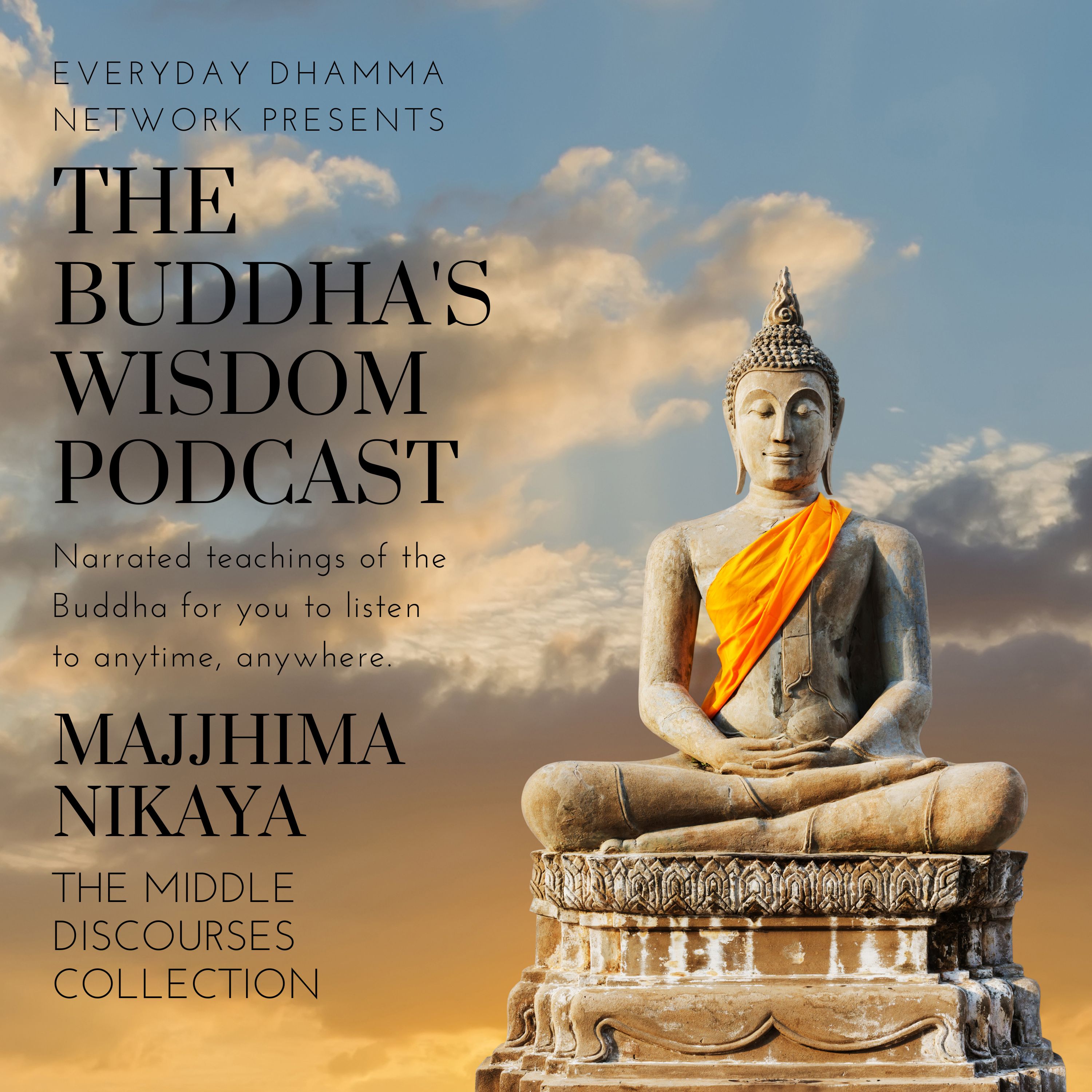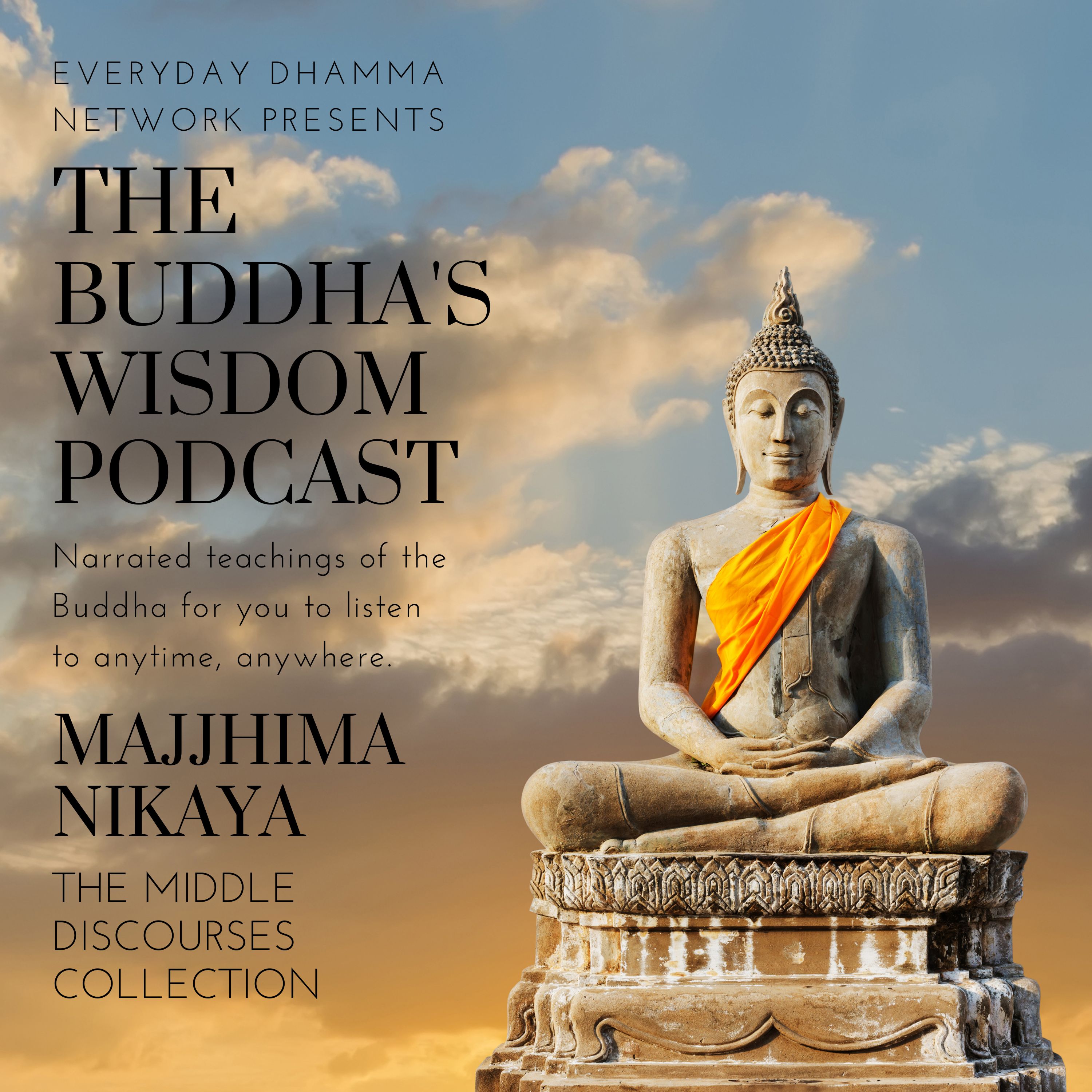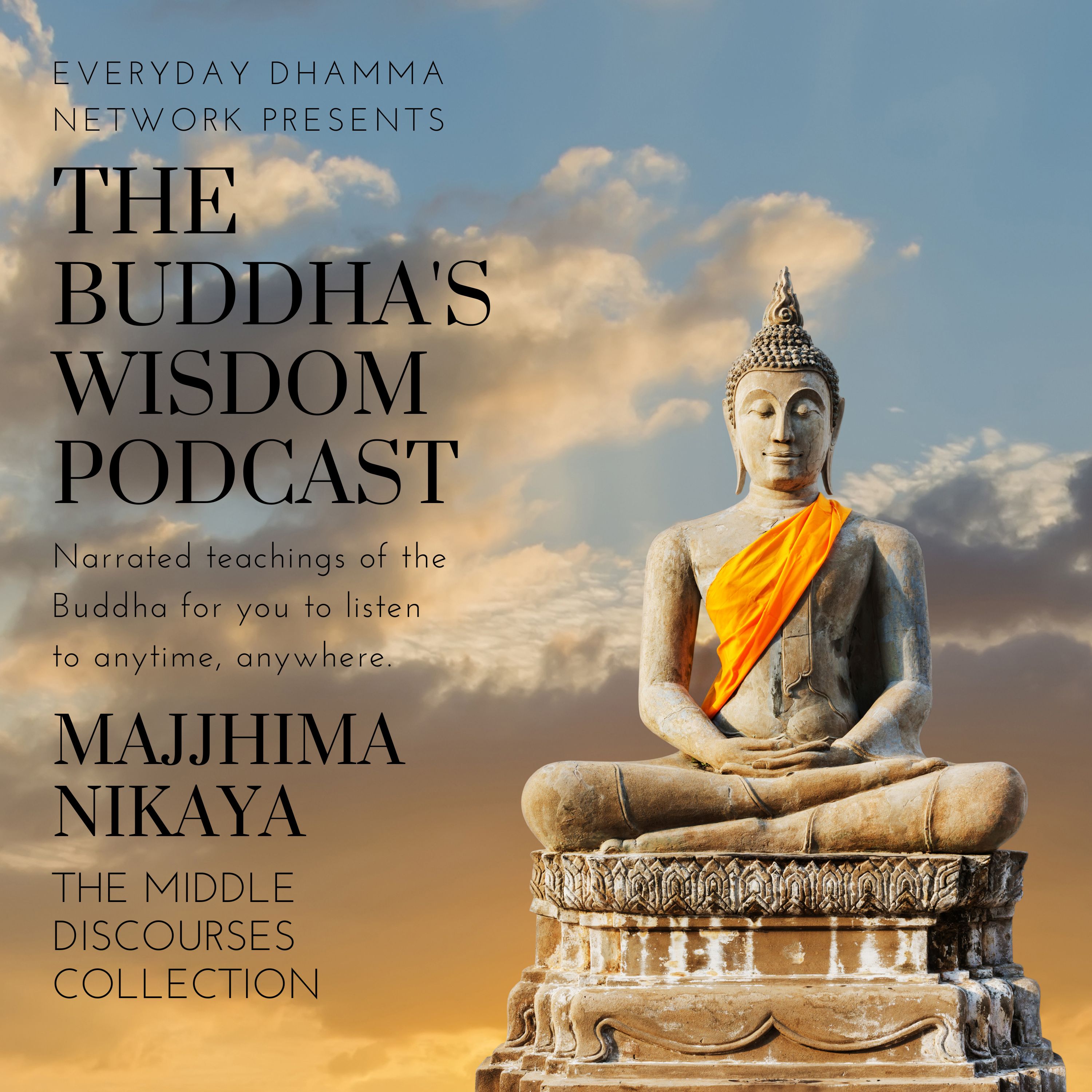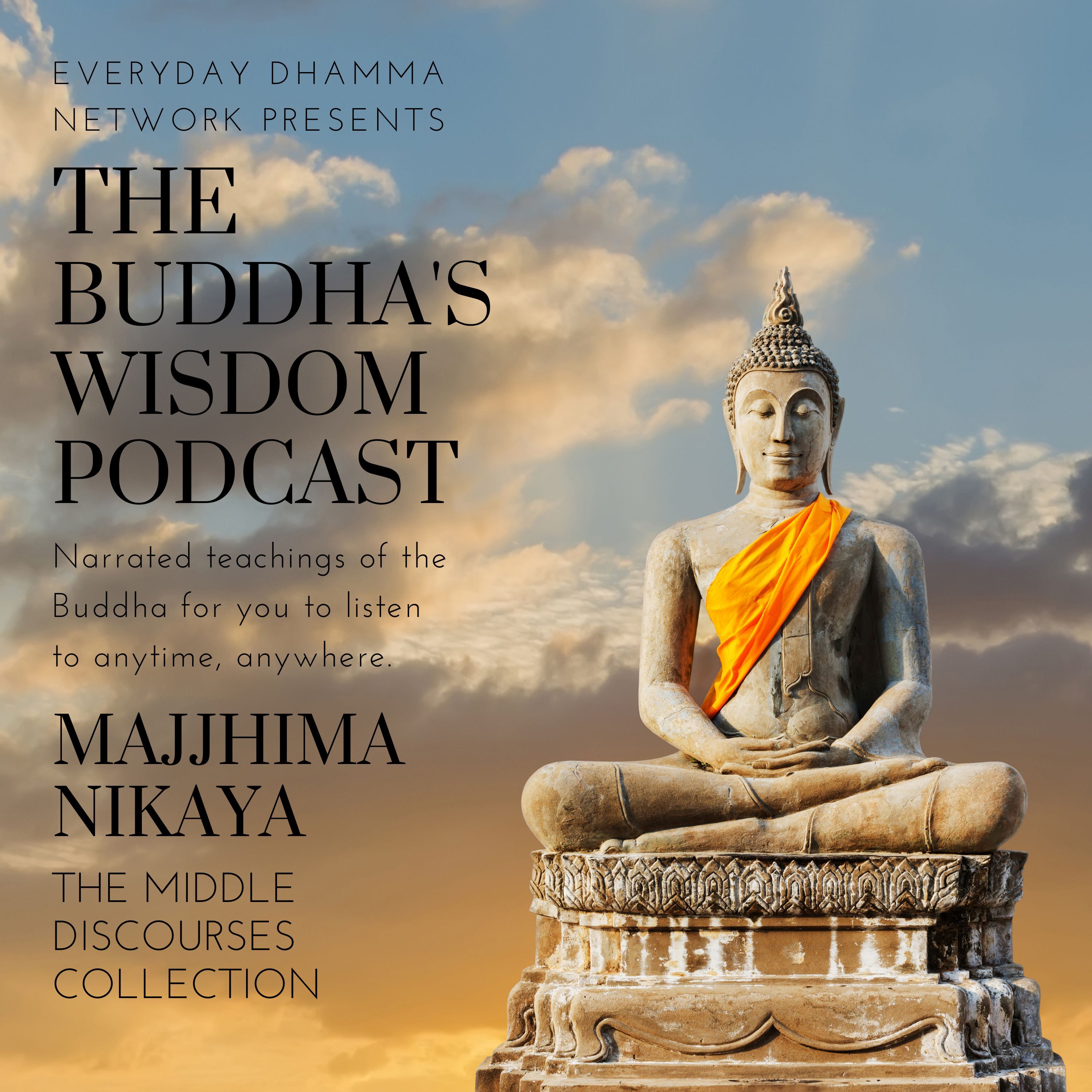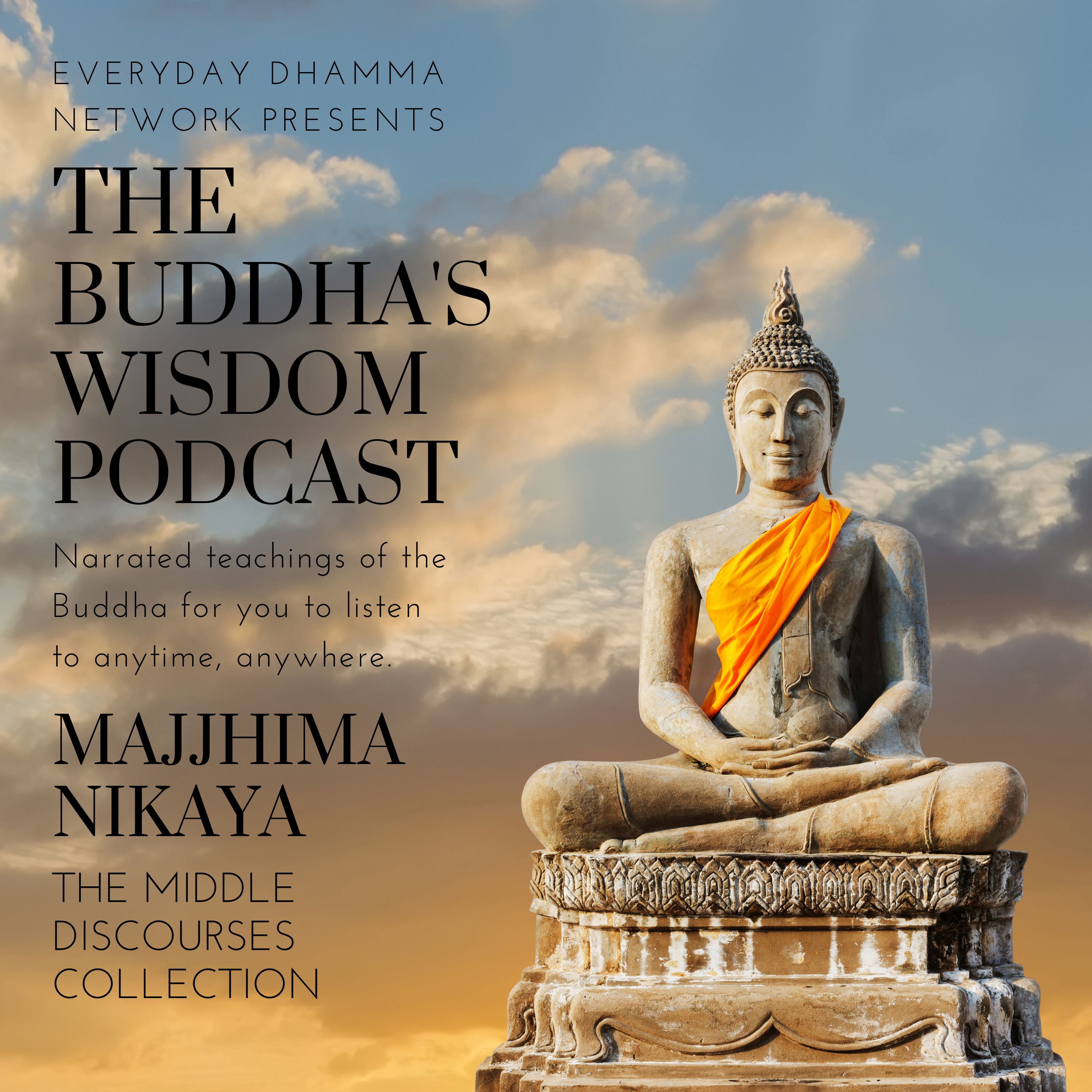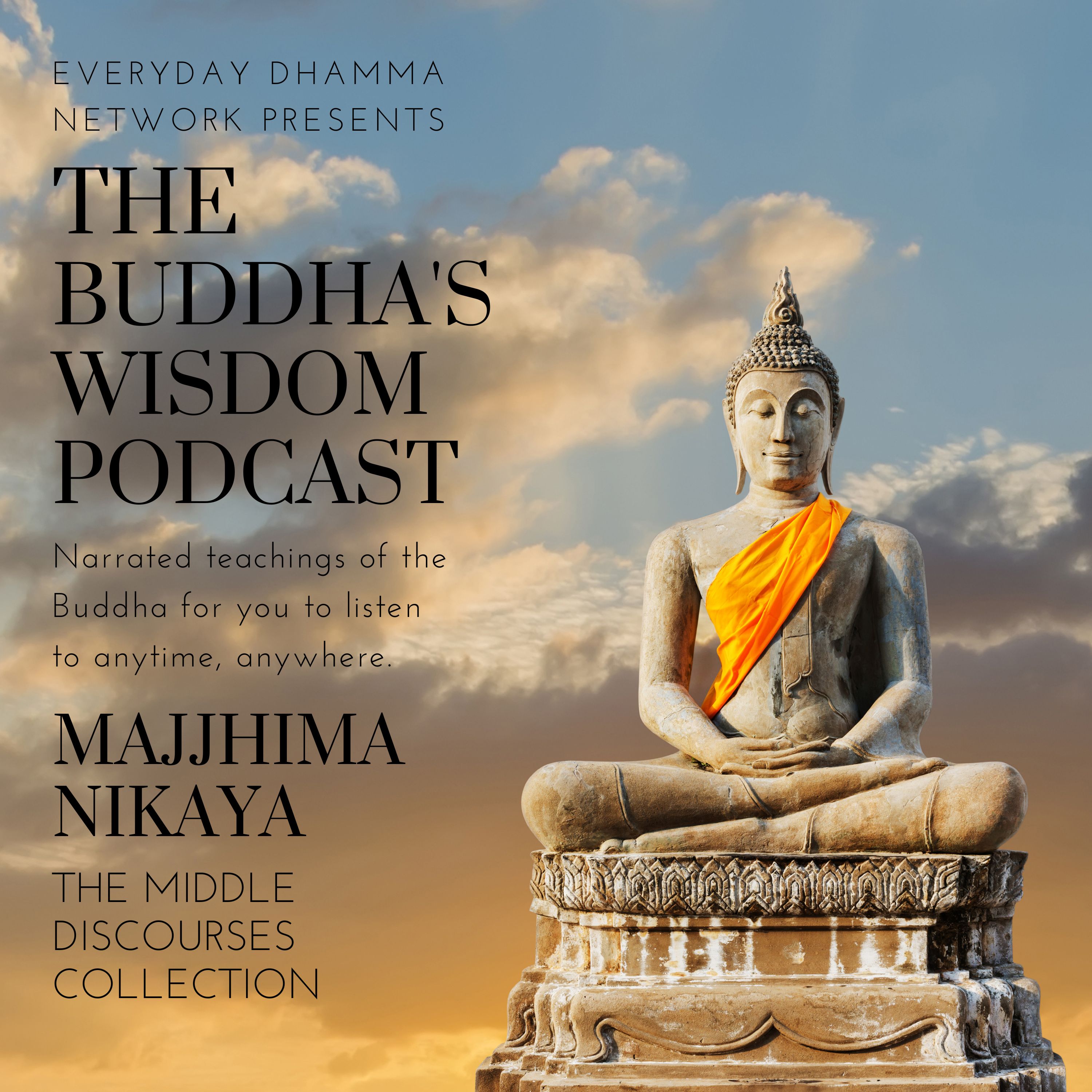Episode Transcript
The Inquirer
So I have heard. In this sutta, the Buddha shows his commitment to radical accountability and integrity. He does not merely pay lip service to the notion of open inquiry, but lays out a detailed and exacting procedure by which his students should test him. By extension, this approach may be applied to any spiritual teacher. At one time the Buddha was staying near Sāvatthī in Jeta’s Grove, Anāthapiṇḍika’s monastery. There the Buddha addressed the mendicants, “Mendicants!”
“Venerable sir,” they replied. The Buddha said this:
“Mendicants, a mendicant who is an inquirer, unable to comprehend another’s mind, should scrutinize the Realized One to see whether he is a fully awakened Buddha or not.” The ability to comprehend the mind of another was considered an advanced meditative skill, not accessible even to all arahants. It allowed one to read the mind of another to the extent of one’s own realization.
“Our teachings are rooted in the Buddha. He is our guide and our refuge. Sir, may the Buddha himself please clarify the meaning of this. The mendicants will listen and remember it.”
“Well then, mendicants, listen and apply your mind well, I will speak.”
“Yes, sir,” they replied. The Buddha said this:
“Mendicants, a mendicant who is an inquirer, unable to comprehend another’s mind, should scrutinize the Realized One for two things—things that can be seen and heard: ‘Can anything corrupt be seen or heard in the Realized One or not?’ This refers to bodily behavior that might be seen or speech that might be heard. Scrutinizing him they find that nothing corrupt can be seen or heard in the Realized One.
They scrutinize further: ‘Can anything mixed be seen or heard in the Realized One or not?’ Scrutinizing him they find that nothing mixed can be seen or heard in the Realized One.
They scrutinize further: ‘Can anything clean be seen or heard in the Realized One or not?’ Scrutinizing him they find that clean things can be seen and heard in the Realized One.
They scrutinize further: ‘Did the venerable attain this skillful state a long time ago, or just recently?’ It is easy to maintain a front for while, but defilements tend to reveal themselves over time. Scrutinizing him they find that the venerable attained this skillful state a long time ago, not just recently.
They scrutinize further: ‘Are certain dangers found in that venerable mendicant who has achieved fame and renown?’ For, mendicants, so long as a mendicant has not achieved fame and renown, certain dangers are not found in them. But when they achieve fame and renown, those dangers appear. Scrutinizing him they find that those dangers are not found in that venerable mendicant who has achieved fame and renown.
They scrutinize further: ‘Is this venerable securely stilled or insecurely stilled? Here uparata means “stilled, ceased” rather than “restrained”. The commentary explains that one has become stilled (uparata) due to the absence of perils (abhaya). The test aims to distinguish the arahant from those for whom the perils of defilements and rebirth, though possibly suppressed for a time through the power of jhāna, are still present. Is the reason they don’t indulge in sensual pleasures that they’re free of greed because greed has ended?’ Scrutinizing him they find that that venerable is securely stilled, not insecurely stilled. The reason they don’t indulge in sensual pleasures is that they’re free of greed because greed has ended.
If others should ask that mendicant, ‘But what reason and evidence does the venerable have for saying this?’ Answering rightly, the mendicant should say, ‘Because, whether that venerable is staying in a community or alone, some people there are in a good state or a sorry state, some instruct a group, and some are seen among pleasures of the flesh while others remain unsullied. Yet that venerable doesn’t look down on them for that. The commentary explains sugata and duggata here as “well practiced” and “poorly practiced”. But the normal sense is one who is in a “good state” or a “sorry state”, typically associated with rebirth, but also with, for example, the “sorry state” of poverty or reduced circumstances (Kd 10:2.4.4, Kd 6:15.5.10). Notice that there are people nearby even when he is living alone, so this must include lay folk as well as monastics. The point is that the Buddha does not despise the poor or show favors to the rich. Also, I have heard and learned this in the presence of the Buddha: “I am securely stilled, not insecurely stilled. The reason I don’t indulge in sensual pleasures is that I’m free of greed because greed has ended.”’ These exact words are not spoken by the Buddha in suttas. However the early Abhidhamma text Puggalapaññatti explains that “insecurely stilled” includes the seven trainees and ethical ordinary people, while the arahant is “securely stilled” (Pp 2.1:11.1). Since the Puggalapaññatti consists mainly of lightly adapted quotes from the suttas, it is possible that this passage has been lost from the suttas as they stand. This would explain why these terms are invoked here as if they were known.
Next, they should ask the Realized One himself about this, ‘Can anything corrupt be seen or heard in the Realized One or not?’ The Realized One would answer, ‘Nothing corrupt can be seen or heard in the Realized One.’
‘Can anything mixed be seen or heard in the Realized One or not?’ The Realized One would answer, ‘Nothing mixed can be seen or heard in the Realized One.’
‘Can anything clean be seen or heard in the Realized One or not?’ The Realized One would answer, ‘Clean things can be seen and heard in the Realized One. I am the range and the territory of that, but I am not determined by that.’ Etaṁ is the accusative of relation, familiar from such phrases as taṁ gotamaṁ evaṁ kalyāṇo kittisaddo abbhuggato (“a good word of that Gotama has spread”). | Ahamasmi (“I am”) asserts identity (not possession per the commentary). It is an Upaniṣadic turn of phrase. | Tammaya (“determined by that”, literally “made with that”) is found occasionally in the suttas (also MN 137:20.3, MN 113:21.7, AN 3.40:7.4, AN 6.104, Snp 4.9:12.2). The Buddha’s usage echoes Bṛhadāraṇyaka Upaniṣad 4.4.5, which begins, “This self is indeed divinity, made with consciousness …” (sa vā ayamātmā brahma vijñānamayo). It goes on to list many other items of which the self is comprised (idaṁmayo), the point being that the self is ultimately created by its actions (yathākārī yathācārī tathā bhavati), a detail that emphasizes the causal sense of -maya. Thus the term does not simply point to that which is the self, but rather that by which the self is shaped or determined. Yajñavalkya also uses etanmaya in the same sense in such passages as Śatapatha Brāhmaṇa 10.4.2.30: “that (self) is made with hymns, sacrifices, breaths, and divinities” (candomaya stomamayaḥ prāṇamayo devatāmayaḥ sa etanmaya) and Bṛhadāraṇyaka Upaniṣad 1.5.3: “that self is made with this: speech, mind, and breath” (etanmayo vā ayam ātmā: vāṅmayo manomayaḥ prāṇamayaḥ). Thus the term emphasizes the Buddha’s freedom from conditions. He exemplifies good qualities but is not “determined” by their kammic force.
A disciple ought to approach a teacher who has such a doctrine in order to listen to the teaching. The teacher explains Dhamma with its higher and higher stages, with its better and better stages, with its dark and bright sides. Cp. AN 5.180. When they directly know a certain principle of those teachings, in accordance with how they were taught, the mendicant comes to a conclusion about the teachings. They have confidence in the teacher: ‘The Blessed One is a fully awakened Buddha! The teaching is well explained! The Saṅgha is practicing well!’
If others should ask that mendicant, ‘But what reason and evidence does the venerable have for saying this?’ Answering rightly, the mendicant should say, ‘Reverends, I approached the Buddha to listen to the teaching. He explained Dhamma with its higher and higher stages, with its better and better stages, with its dark and bright sides. When I directly knew a certain principle of those teachings, in accordance with how I was taught, I came to a conclusion about the teachings. I had confidence in the Teacher: “The Blessed One is a fully awakened Buddha! The teaching is well explained! The Saṅgha is practicing well!”’
When someone’s faith is settled, rooted, and planted in the Realized One in this manner, with these words and phrases, it’s said to be grounded faith that’s based on evidence. In this sentence the word ākāra is used in two distinct senses. In the stock phrase “in this manner, with these words and phrases” (imehi ākārehi imehi padehi imehi byañjanehi) it means “manner” of exposition (MN 18:20.17, SN 35.116:10.14, AN 10.115:21.2). In the phrase “grounded faith” (ākāravatī saddhā) it means a “ground” or “reason” on which faith is based. It is strong, and cannot be shifted by any ascetic or brahmin or god or Māra or divinity or by anyone in the world. Various editions (MS, PTS, BJT) followed by translators (Bodhi, Horner) connect daḷhā with the foregoing dassanamūlikā. But that foregoing text is missing in the parallels for this passage (DN 27:9.3, SN 48.42:6.4, Iti 83:10.1). Daḷhā is connected rather with asaṁhāriyā, which is in any case semantically closer than dassanamūlikā. That is how there is legitimate scrutiny of the Realized One, and that is how the Realized One is legitimately well-scrutinized.”
That is what the Buddha said. Satisfied, the mendicants approved what the Buddha said.
